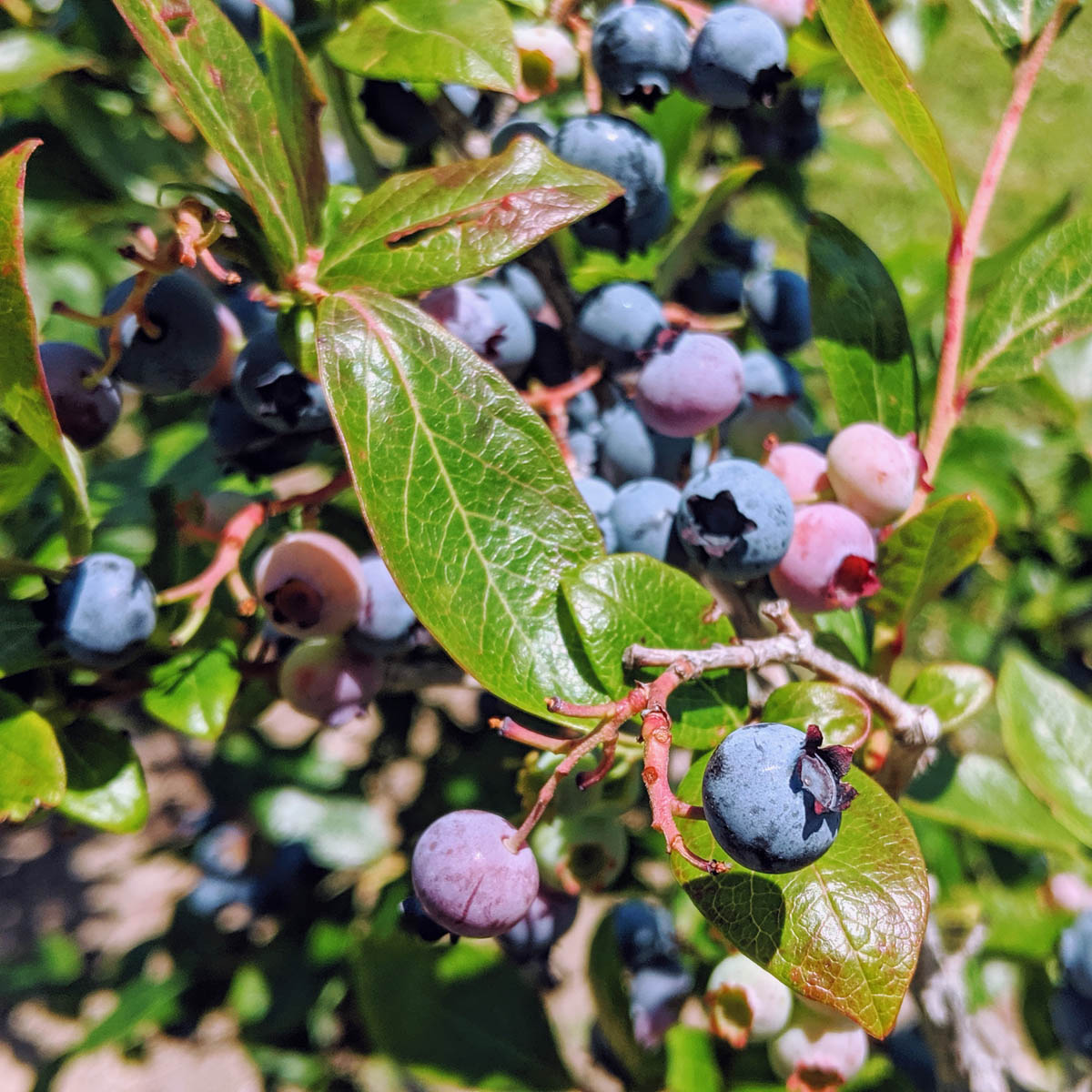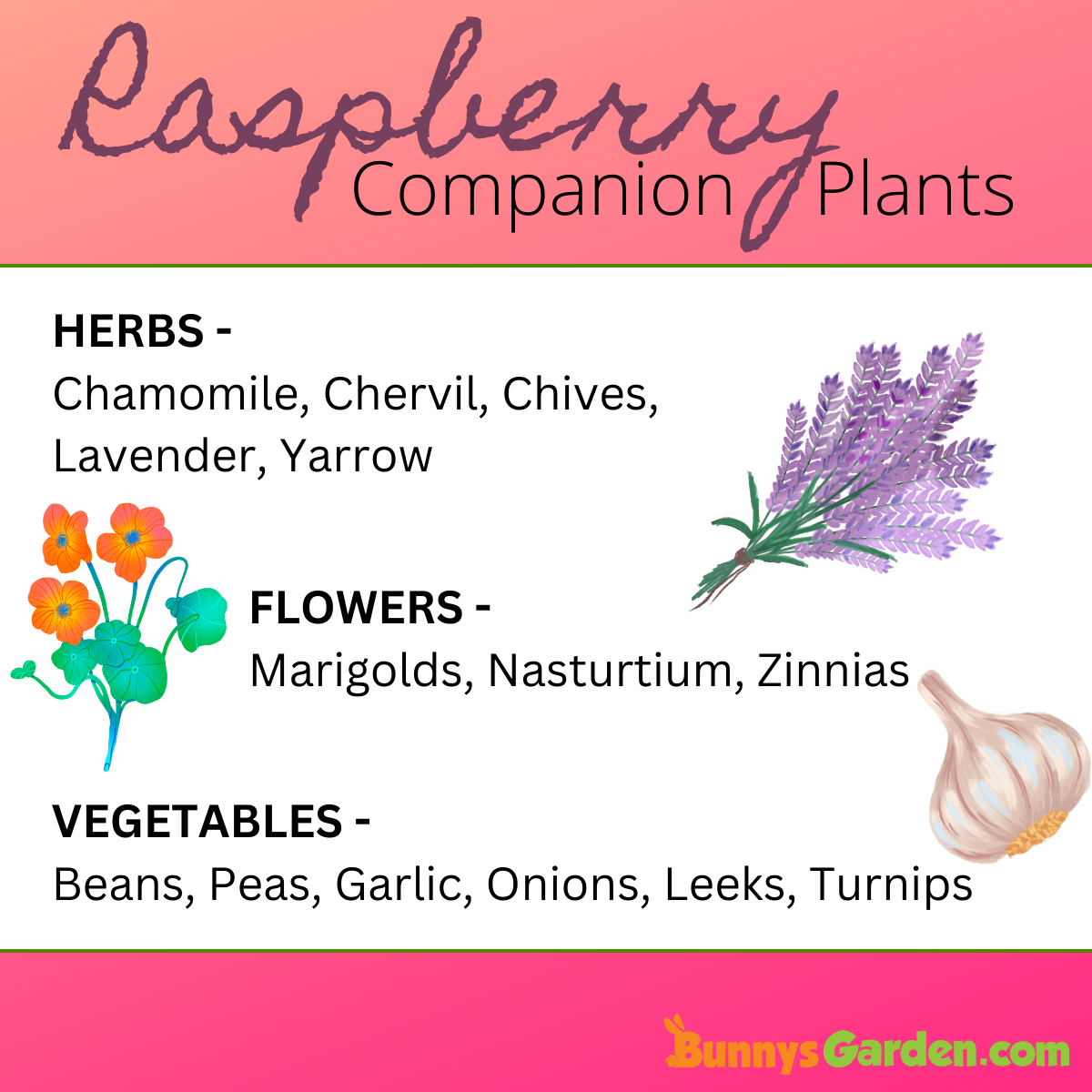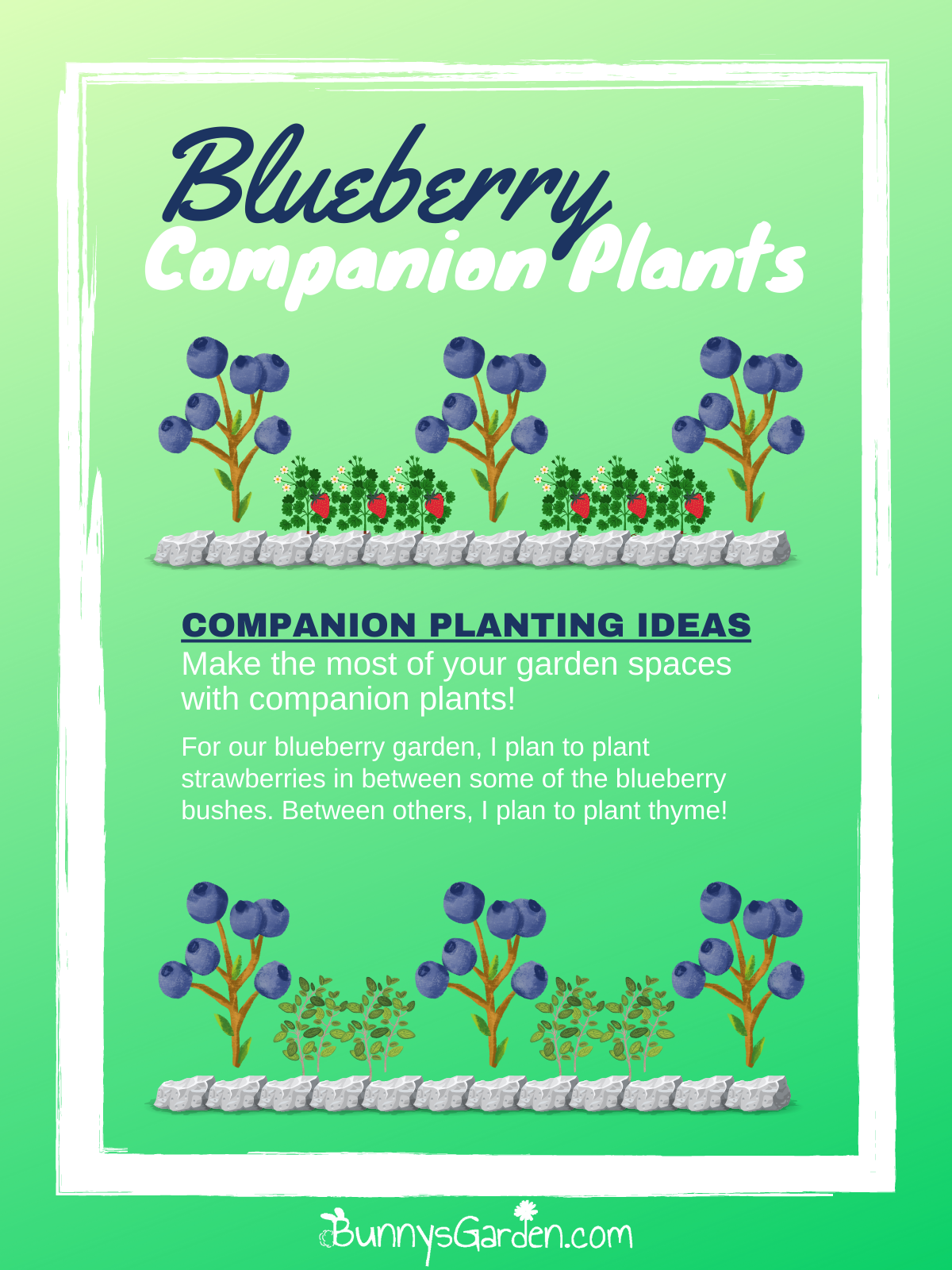The Ultimate Guide To Companion Planting Raspberries And Blueberries
The Ultimate Guide to Companion Planting Raspberries and Blueberries
Raspberries and blueberries are two of the most popular berries to grow in home gardens. They're both delicious, nutritious, and relatively easy to care for. But did you know that you can actually improve the health and productivity of your raspberries and blueberries by companion planting?
Companion planting is the practice of planting different types of plants together in order to benefit each other. By carefully choosing your companion plants, you can attract beneficial insects, deter pests, improve soil health, and even increase yields.
In this guide, we'll discuss the best companion plants for raspberries and blueberries. We'll also talk about what to avoid planting near these berries, and how to get started with companion planting in your own garden.
Why Companion Plant Raspberries and Blueberries?
There are several reasons why you might want to consider companion planting raspberries and blueberries.
- Attract beneficial insects. Raspberries and blueberries are both susceptible to a number of pests, including aphids, spider mites, and Japanese beetles. Companion planting can help to attract beneficial insects that will prey on these pests, keeping your berries healthy.
- Deter pests. Some companion plants can actually deter pests from your raspberries and blueberries. For example, planting marigolds near raspberries can help to repel aphids.
- Improve soil health. Companion plants can help to improve the soil health around your raspberries and blueberries. For example, legumes can help to fix nitrogen in the soil, providing your berries with a valuable nutrient.
- Increase yields. Companion planting can actually help to increase the yields of your raspberries and blueberries. For example, planting nasturtiums near raspberries can help to improve pollination, leading to more berries.
What to Plant Near Raspberries and Blueberries
There are a number of plants that make good companion plants for raspberries and blueberries. Some of the best include:
- Allium: Alliums, such as onions, garlic, and chives, can help to repel pests from raspberries and blueberries.
- Clover: Clover is a nitrogen-fixing plant that can help to improve the soil health around your raspberries and blueberries.
- Fennel: Fennel can help to attract beneficial insects that will prey on pests.
- Marigolds: Marigolds are another great plant for attracting beneficial insects. They can also help to deter pests.
- Nasturtiums: Nasturtiums can help to improve pollination, leading to more berries.
- Potatoes: Potatoes can help to suppress weeds around raspberries and blueberries.
- Spinach: Spinach can help to improve the soil drainage around raspberries and blueberries.
What Not to Plant Near Raspberries and Blueberries
There are a few plants that you should avoid planting near raspberries and blueberries. These include:
- Tomatoes: Tomatoes can spread verticillium wilt to raspberries, so it's best to avoid planting them near each other.
- Potatoes: Potatoes can also spread verticillium wilt to raspberries, so it's best to avoid planting them near each other.
- Eggplants: Eggplants can spread Verticillium wilt to raspberries, so it's best to avoid planting them near each other.
- Nightshades: In general, it's best to avoid planting any nightshades near raspberries, as they can all spread verticillium wilt.
How to Get Started with Companion Planting
Companion planting is a great way to improve the health and productivity of your raspberries and blueberries. To get started, simply choose some of the companion plants listed above and plant them near your raspberries and blueberries. Be sure to space the plants according to their mature size, and water them regularly.
With a little care and attention, you can enjoy delicious, healthy raspberries and blueberries for years to come.
Raspberries and blueberries are both delicious and nutritious fruits that are a great addition to any garden. But did you know that they can also benefit each other when they are planted together? This is because companion planting is a gardening technique that takes advantage of the natural relationships between plants to improve their growth and productivity.
When raspberries and blueberries are planted together, they can help to attract beneficial insects, deter pests, and improve the overall health of the soil. For example, raspberries can attract predatory insects that help to control pests that can damage blueberries. Blueberries, on the other hand, can help to improve the drainage of the soil around raspberries, which can help to prevent root rot.
If you are interested in learning more about companion planting raspberries and blueberries, I recommend visiting the website Gardenia Inspiration. This website provides a wealth of information about the benefits of companion planting, as well as specific recommendations for which plants can be planted together.
FAQ of companion planting raspberries and blueberries
Q: Can I plant raspberries and blueberries together?
A: While it is possible to plant raspberries and blueberries together, it is not ideal. The growth habits of raspberries and blueberries are very different, making it difficult to care for both types of berries in the same location. Raspberries are rambling canes with thorns, while blueberries are upright shrubs. Additionally, blueberries prefer extremely acidic soil (between 4.3 and 5.5 pH), while raspberries prefer a mildly acidic soil (closer to 5.5 to 6.5 pH).
If you do decide to plant raspberries and blueberries together, it is important to choose varieties that are compatible with each other. For example, you could plant a thornless raspberry variety with a low-growing blueberry variety. You will also need to pay close attention to the soil pH and adjust it as needed.
Q: What are some good companion plants for raspberries?
A: Some good companion plants for raspberries include:
- Cucumbers: Cucumbers help to repel pests that can damage raspberries, such as aphids and spider mites.
- Carrots: Carrots help to improve the drainage of the soil around raspberries, which can help to prevent root rot.
- Onions: Onions help to repel nematodes, which can be a problem for raspberries.
- Beans: Beans help to fix nitrogen in the soil, which can benefit raspberries.
- Marigolds: Marigolds help to repel pests and diseases that can damage raspberries.
Q: What are some good companion plants for blueberries?
A: Some good companion plants for blueberries include:
- Evergreens: Evergreens help to provide shade for blueberries during the hot summer months.
- Dogwood trees: Dogwood trees help to attract pollinators, which are essential for blueberry pollination.
- Heather: Heather helps to improve the drainage of the soil around blueberries, which can help to prevent root rot.
- Thyme: Thyme helps to repel pests that can damage blueberries, such as aphids and spider mites.
- Clover: Clover helps to fix nitrogen in the soil, which can benefit blueberries.
Q: What should I avoid planting near raspberries and blueberries?
A: Some plants that you should avoid planting near raspberries and blueberries include:
- Tomatoes: Tomatoes can introduce the fungi responsible for Verticillium wilt, which can be a serious disease for raspberries and blueberries.
- Potatoes: Potatoes can harbor nematodes that can damage raspberries and blueberries.
- Eggplant: Eggplant can harbor nematodes that can damage raspberries and blueberries.
- Melons: Melons can introduce the fungi responsible for powdery mildew, which can be a problem for raspberries and blueberries.
- Plants in the rose family: Plants in the rose family, such as roses, can introduce the fungi responsible for black spot, which can be a problem for raspberries and blueberries.
Q: What is the best fertilizer for raspberries and blueberries?
A: The best fertilizer for raspberries and blueberries is ammonium sulfate. Ammonium sulfate helps to keep the soil pH acidic, which is essential for the health of raspberries and blueberries. You can apply ammonium sulfate in the spring and fall, following the directions on the fertilizer label.
Image of companion planting raspberries and blueberries
- Image 1: A row of raspberry bushes with a blueberry bush in the foreground. The raspberry bushes are covered in flowers, and the blueberry bush is laden with ripe berries.

- Image 2: A bed of mixed flowers and herbs, including lavender, chamomile, and chives, with raspberry bushes and blueberry bushes in the background.

- Image 3: A close-up of a raspberry bush with a white clover groundcover. The clover helps to improve the soil quality and attract beneficial insects.

- Image 4: A view of a raspberry and blueberry patch from above. The raspberries are planted in a row, and the blueberries are planted in a cluster.

- Image 5: A sign that says "Raspberries and blueberries: the perfect companion planting."

Post a Comment for "The Ultimate Guide To Companion Planting Raspberries And Blueberries"